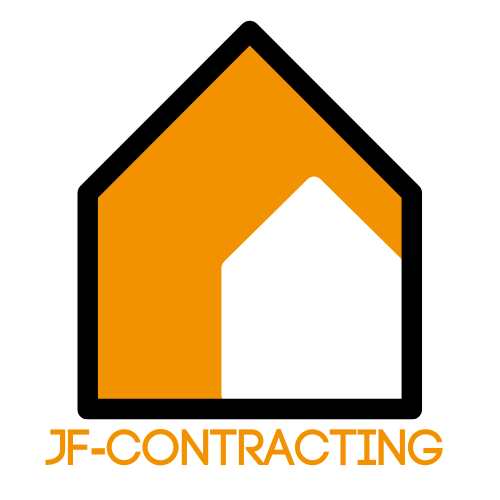Navigating the world of rental agreements can feel like trying to solve a Rubik’s Cube blindfolded. In Wisconsin, understanding tenant rights is crucial for anyone who wants to avoid the dreaded landlord limbo. Whether it’s dealing with leaky faucets or understanding security deposits, knowing your rights can be the difference between a cozy home and a rental nightmare.
Table of Contents
ToggleUnderstanding Wisconsin Tenant Rights
Understanding tenant rights in Wisconsin ensures tenants enjoy secure and fair housing. It covers various areas including lease agreements, maintenance responsibilities, and security deposits.
Overview of Tenant Rights in Wisconsin
Tenant rights in Wisconsin include the right to a habitable living space. Landlords must maintain safe conditions and adhere to building codes. Tenants possess rights related to privacy, allowing them quiet enjoyment of their rented home. They also have the right to receive their security deposit back within 21 days after moving out, provided no damages beyond normal wear and tear occurred. Written notices from landlords must be given for lease terminations or rent increases, aligning with specific timelines dictated by law.
Key Laws Protecting Tenants
Key laws protecting tenants include the Wisconsin Statutes Chapter 704, which governs residential leases. This statute mandates that landlords make necessary repairs to maintain a livable environment. The Fair Housing Act prohibits discrimination in rental housing based on protected characteristics. Wisconsin’s security deposit laws ensure tenants receive fair treatment regarding deposits, limiting the deductions landlords can take. Additional protections against retaliatory evictions are in place, allowing tenants to assert their rights without fear of retribution from landlords.
Common Tenant Rights in Wisconsin

Understanding common tenant rights in Wisconsin helps ensure a fair rental experience. These rights provide essential protections for tenants throughout their leasing period.
Right to a Habitable Living Space
Tenants have the right to a habitable living space under Wisconsin law. This means landlords must maintain rental properties in a safe and livable condition. Issues like broken heating systems, plumbing problems, or pest infestations must be addressed promptly. Failure to make necessary repairs can lead to legal actions against landlords. It’s important for tenants to document issues and communicate them in writing to their landlords. If landlords ignore repair requests, tenants can seek help from local housing authorities or legal aid organizations.
Right to Privacy
The right to privacy is another important tenant right in Wisconsin. Landlords cannot enter a rental unit without proper notice, except in emergencies. Typically, landlords must provide at least 24 hours notice before entering for maintenance or inspections. This rule helps protect tenants’ personal space and belongings. If landlords violate this right, tenants may consider filing a complaint. Tenants also have the right to set reasonable conditions for entry into their rental units. Clear communication can help foster respect for privacy between tenants and landlords.
Security Deposits in Wisconsin
Security deposits play a crucial role in rental agreements in Wisconsin. Understanding the rules governing these deposits helps tenants protect their rights.
Rules Regarding Security Deposits
Landlords in Wisconsin may charge a security deposit, which typically cannot exceed one month’s rent for unfurnished units and may be higher for furnished ones. State law mandates that tenants receive a written receipt for any security deposit paid. Additionally, landlords must place the deposit in a separate, interest-bearing account, allowing tenants to accrue interest. Tenants retain the right to the deposit return unless landlords provide specific deductions documented within 21 days after moving out.
Procedures for Returning Security Deposits
Returning security deposits should follow specific procedures outlined by state law. Landlords must provide tenants with an itemized list of deductions, if any, alongside the remaining deposit amount within 21 days after lease termination. Failure to comply may result in tenants recovering the entire deposit amount, including legal fees if necessary. Tenants should confirm the condition of the unit through documentation, such as photos, to support any disputes regarding deductions.
Termination of Lease Agreements
Terminating a lease agreement in Wisconsin involves specific procedures and rights for both tenants and landlords. Understanding these details can help navigate potential disputes or evictions smoothly.
Grounds for Eviction in Wisconsin
Landlords in Wisconsin can pursue eviction for various reasons, such as non-payment of rent, violation of lease terms, and illegal or disruptive behavior. Consistently failing to pay rent within five days after it’s due can result in eviction proceedings. Moreover, significant lease violations, like unauthorized subletting or property damage, enable landlords to file for eviction. Tenants must receive a five-day notice to remedy non-payment or a 14-day notice for lease violations before eviction processes can start. These grounds help establish clear standards for both parties during lease termination.
Tenants’ Rights During Eviction Process
Tenants possess specific rights during the eviction process in Wisconsin. Legal notifications must meet certain requirements, providing tenants adequate time to respond. They maintain the right to contest eviction in court, ensuring an opportunity to present their case. A landlord cannot evict a tenant without a court order, safeguarding tenants from unlawful removal or harassment. Additionally, tenants can seek legal aid to understand their rights and navigate the eviction process. Knowledge of these rights empowers tenants and fosters a fair resolution during disputes over lease terminations.
Resources for Tenants
Numerous resources are available for tenants in Wisconsin to assist them with their rights and responsibilities. Understanding where to seek help can enhance the rental experience.
Legal Aid Organizations
Legal aid organizations provide essential support for tenants dealing with housing issues. They offer free or low-cost legal services in areas such as eviction defense, security deposit disputes, and lease negotiations. In Wisconsin, several prominent legal aid organizations exist, including Legal Action of Wisconsin and the Wisconsin Judicare. These organizations typically offer consultations to help tenants navigate complex legal matters. Access to legal guidance enables tenants to understand their rights fully and find effective resolutions for disputes.
Government Agencies
Government agencies play a key role in protecting tenant rights in Wisconsin. The Wisconsin Department of Agriculture, Trade, and Consumer Protection oversees tenant-landlord relations and enforces housing laws. Should tenants face issues, they can file complaints with this agency for mediation. Local housing authorities also provide assistance, ensuring access to resources like rental assistance programs and housing counseling services. Tenants can contact these agencies for guidance on maintaining a safe living environment or resolving conflicts with landlords. Accessing the right government resources streamlines the process of addressing tenant-related issues effectively.
Understanding tenant rights in Wisconsin is crucial for a positive rental experience. By being informed about their rights to a habitable living space privacy and proper handling of security deposits tenants can navigate potential disputes with confidence. Knowing the legal protections available empowers them to address issues effectively and seek assistance when needed.
Utilizing resources like legal aid organizations and local housing authorities can further enhance their ability to advocate for themselves. Awareness of these rights not only fosters better communication with landlords but also promotes fair treatment in rental agreements. Ultimately informed tenants are better equipped to secure their rights and enjoy a stable living environment.








